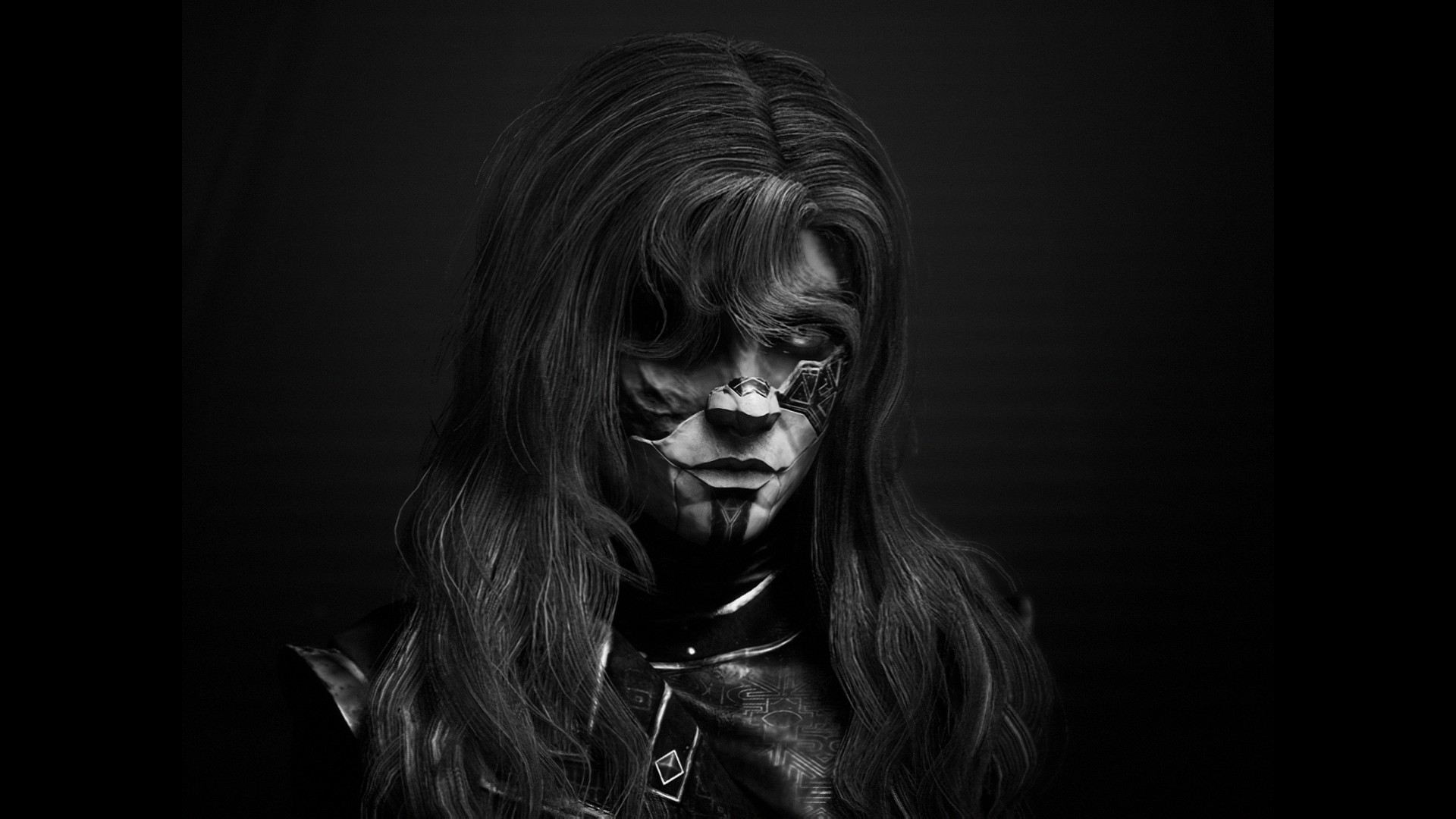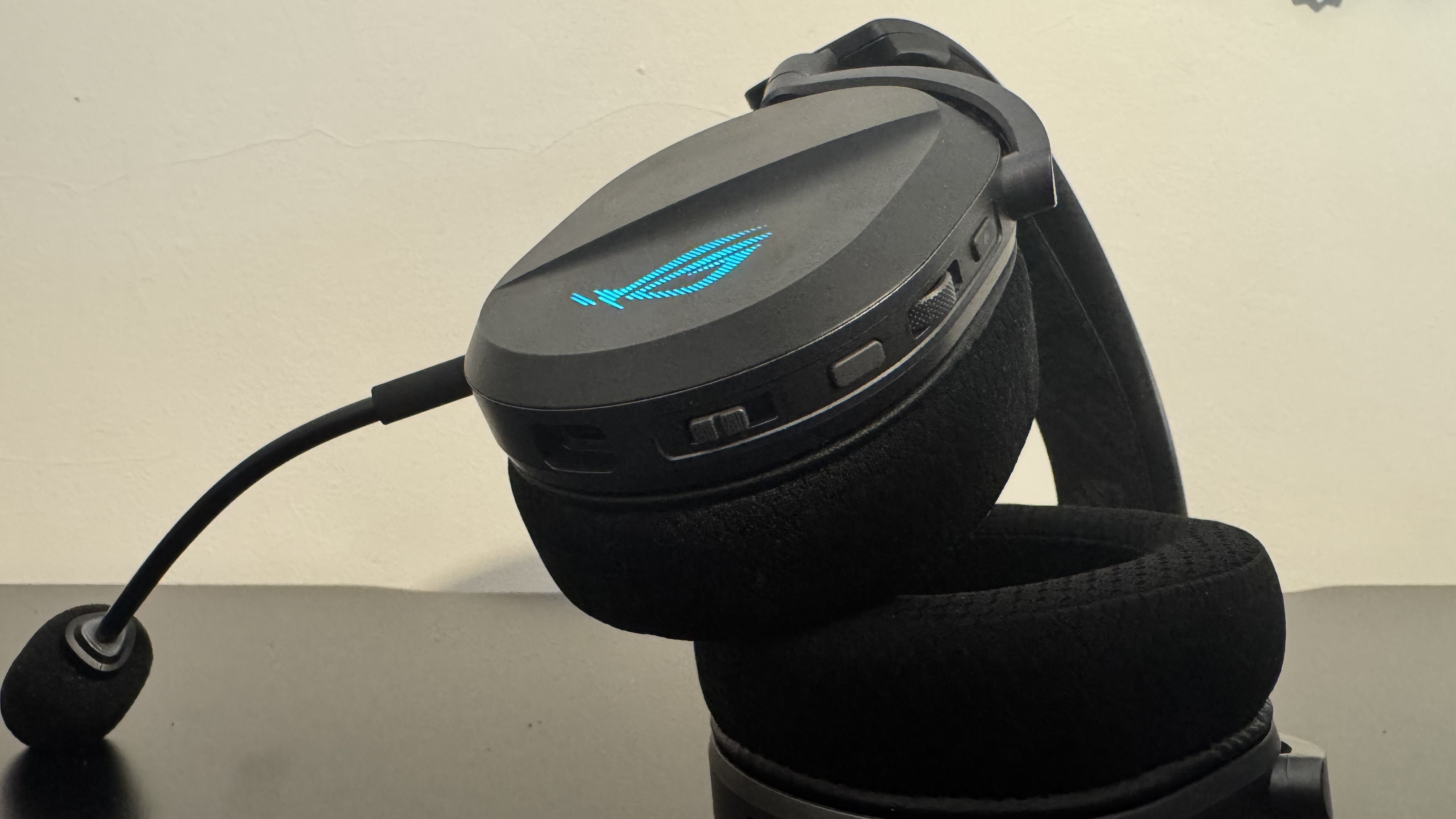Our Verdict
Clair Obscur: Expedition 33's gorgeously realized world is let down by its emphasis on combat, marred by a few fatal stumbles.
PC Gamer's got your back
What is it? Kind of like Persona, but French. Perseauxna.
Release date April 24, 2024
Developer Sandfall Interactive
Publisher Kepler Interactive
Reviewed on: Windows 11, NVIDIA GeForce RTX 3060 Ti, Intel Core i7-12700F, 16GB RAM
Steam Deck Unsupported
Link Official site
You know how comedy geniuses and chronic dieters will say their favorite brand of chips is "dangerous," because once you rip open the bag it’s a swift trip to the bottom? That’s me with JRPGs; Kingdom Hearts’ absurd garble of a plot breached my treasured memories after I spent 100 hours with its cast, and the Wii’s Xenoblade Chronicles infected me with a deep-seated bitterness at the fact that I don’t live on a giant mech with a laser sword and a tax evading hamster.
These games demand you live in them for a while, slowly fostering a bunch of level one nobodies into god-killing besties, and I'm susceptible enough to that demand I go into new JRPGs prepared to get lost in them, love them, and succumb to ennui when they’re finally over. Clair Obscur’s offbeat take on Belle Époque France promised blockbuster action, a cast of brooding sorcerers to mold into an apocalypse prevention squad, and a battle system which cleaves to genre standards while infusing them with twitchy QTEs and a dang gun I can fire in real time. Dangerous.
Clair Obscur's commitment to the vibe drew me in at first, but ... mandatory distractions left me wondering if it might be more fun to gawk at than play
Even more tantalizing was its premise, which is so convoluted it's hard to explain concisely. Every year a mysterious figure called the Paintress marks a giant tower with an increasingly low number, and everyone who's that age dies. Fantasy France has been sending expeditions to her tower to figure out what's going on beneath the shadow of a magically warped Eiffel Tower, but none of them have returned. The latest of these squads, my squad, are mostly 33, and in the apparent final year of their lives.
Clair Obscur is superlatively French and I've never played an RPG quite like it. It's a somber, swashbuckling tale of loss with lots of surprises along the way, and the strong performances throughout bolster a plot which thrives on its novelty—though too slight and short to amount to much more.
Clair Obscur oozes flair, and voice acting by the likes of Andy Serkis and Jennifer English (Baldur's Gate 3's Shadowheart) adds a lot of punch to its lengthy cinematics. Though its splashy combat UI isn't quite as extravagant as Persona's or Metaphor: Refantazio's, it's clearly cribbing from the best. Rapid QTEs and glowing swords dance in tandem with flashy particle effects and emphatic slow motion, giving otherwise ho-hum hacks and slashes the drama of a flying trapeze routine. When protagonist and sword-mage Gustave fires off a fully charged volley of red lightning and quips "For those who come after" as a reward for perfect QTE timing, it feels like the final act of a play I wrote just by killing a random goblin.
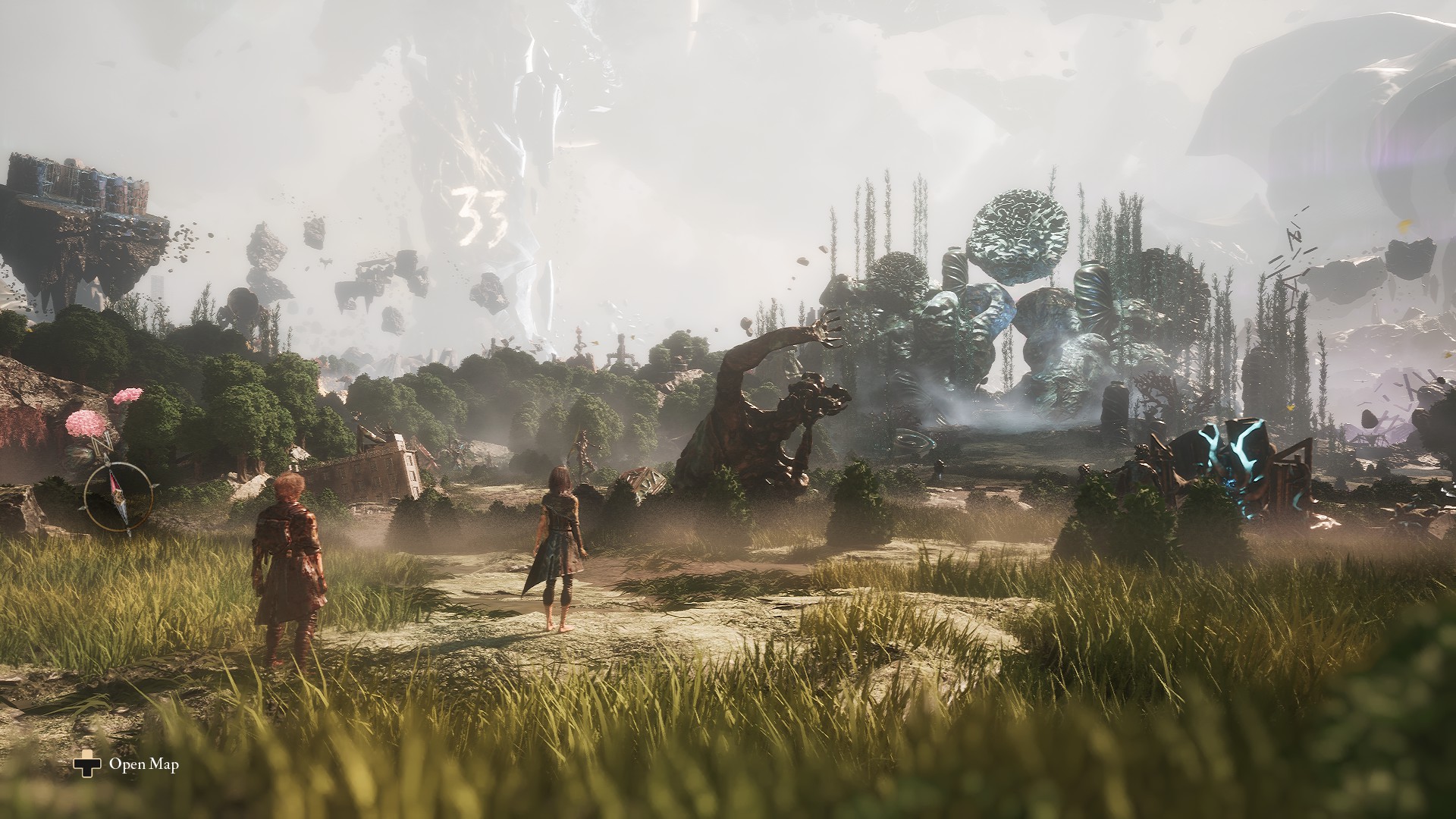
It's rare a turn-based game rolls out the red carpet so lavishly, reaching for narrative catharsis while I grind hordes of identical ghoulies into EXP. Clair Obscur's commitment to the vibe drew me in at first, but it quickly piled on real-time parries, dodges, counters, and other mandatory distractions that left me wondering if it might be more fun to gawk at than play.
Dodgepodge
I admit I've started to doze off grinding mobs in Dragon Quest before, and spicing up a turn-based battle system with a pinch of real-time challenge theoretically primed me to lock in a bit more. I think that's what Clair Obscur is going for when it takes a pretty familiar loop—queue up spells and attacks, guzzle potions to manage health and mana, make it to the next checkpoint without dying—and adds a lethal ultimatum: dodge or parry the majority of enemy attacks or get melted in a handful of turns.
It certainly adds some tension, but so would balancing a beach ball on my nose while I speed down the highway. In practice, every overworld encounter becomes an uphill climb where pattern memorization is the crux of the action. These attacks are tricky to dodge; some make use of gratuitous slow motion while others don't. The game slowly introduces new types which must be jumped over, and more still which must be countered with a different button.
It feels like Clair Obscur is deliberately trying to trip you up sometimes, and when some of its boss fights drag into multiple phases over dozens of minutes—often introducing new attacks right at the end—losing party members to a handful of failed dodges and getting sent back to the start is a drag.
One common overworld enemy is the ghost of a deep sea diver lugging around a naval mine. There's some immediate counterplay I can leverage: if I spend some mana on a Free Aim shot at his mine, it'll do massive damage to the whole pack of enemies, and previous encounters have taught me his elemental resistances. But his signature attack calls down a delayed lightning strike with a narrow dodge window. If I perfectly parry, I'll get a sliver of mana, and if I fail, I almost instantly die. Nearly every fight I wasn't overleveled for cranked up the stakes to noxious thresholds this way—nail the dodge timing for the chance to proceed as normal or it's back to the last checkpoint.
Git gud, right? I'd accept that reproach for a lot of games, but the trial-and-error rote memorization needed to reach credits in Clair Obscur frustrated me not just because it was constantly demanding, but because it drowned out the fantastic turn-based core.
Character playstyles are radically different from one another; Monoco plays a bit like Final Fantasy's blue mage, collecting enemy attacks and empowering them at the whim of a constantly spinning wheel, while Maelle is a stance-dancing fencer who struggles to stay in a fleeting Virtuoso stance that triples her damage. I grew attached to the cast and struggled to choose my party of three because I found each character so fun. But as much as I tried to line up different status effect combos and outfit my team with different passives to complement their strengths, Clair Obscur never gave me much feedback.
It's easy enough to get your party dishing out 9,999 damage regularly—the cap for most of the game—and while I struggled on nearly every boss fight, I never overcame them by adjusting my strategy. I always won because I memorized their animations and parried at the right moment every time.
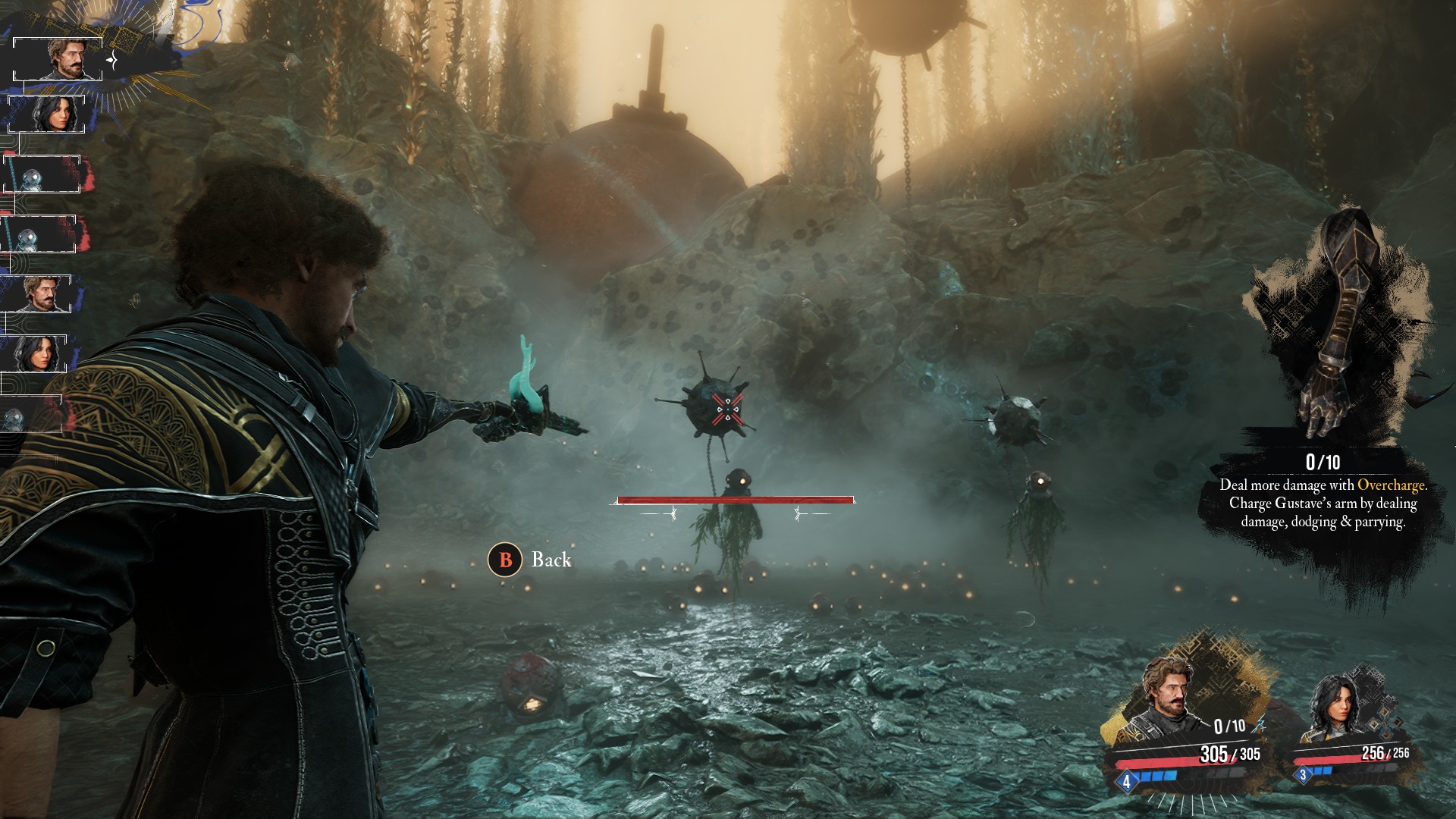
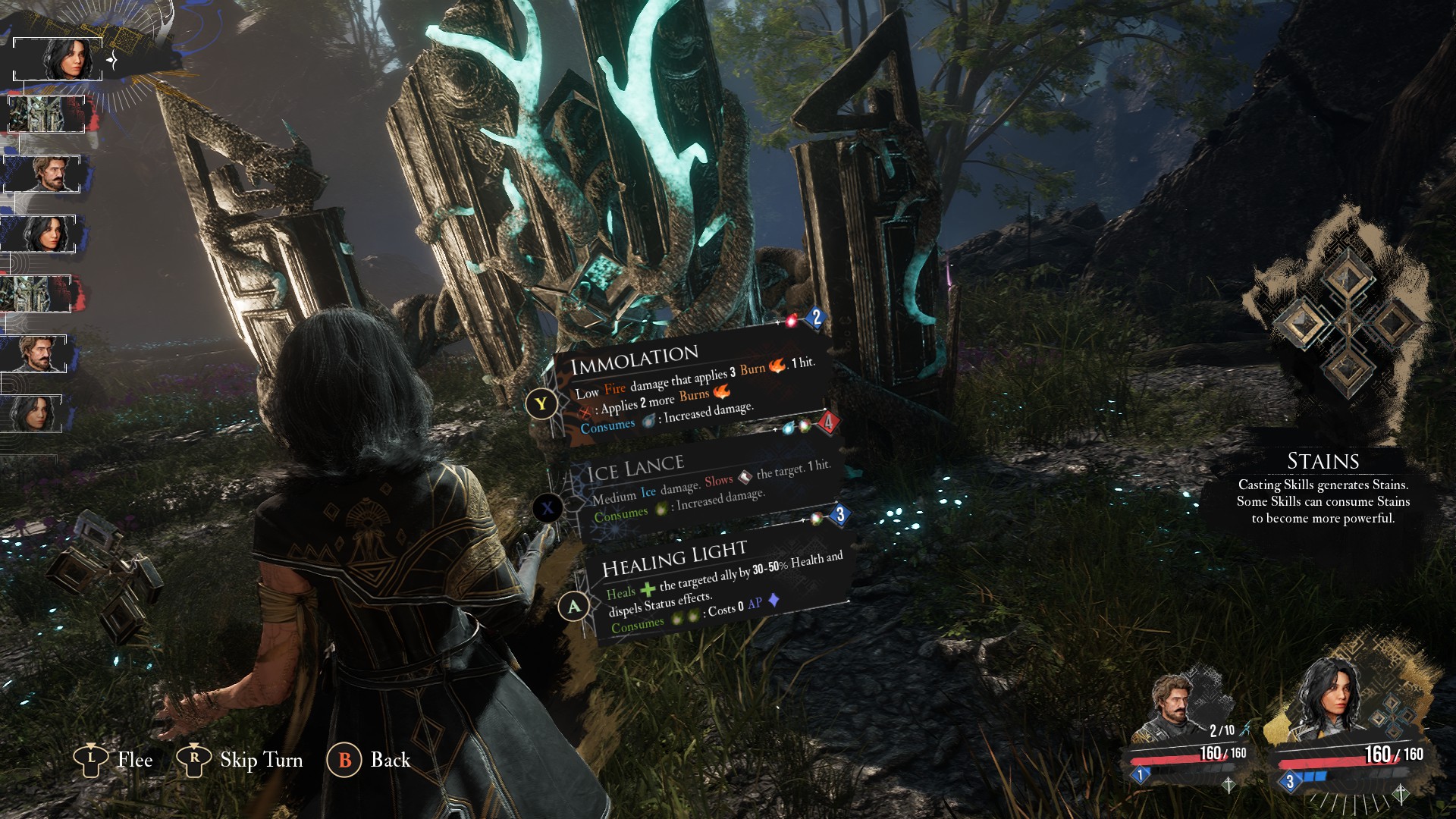
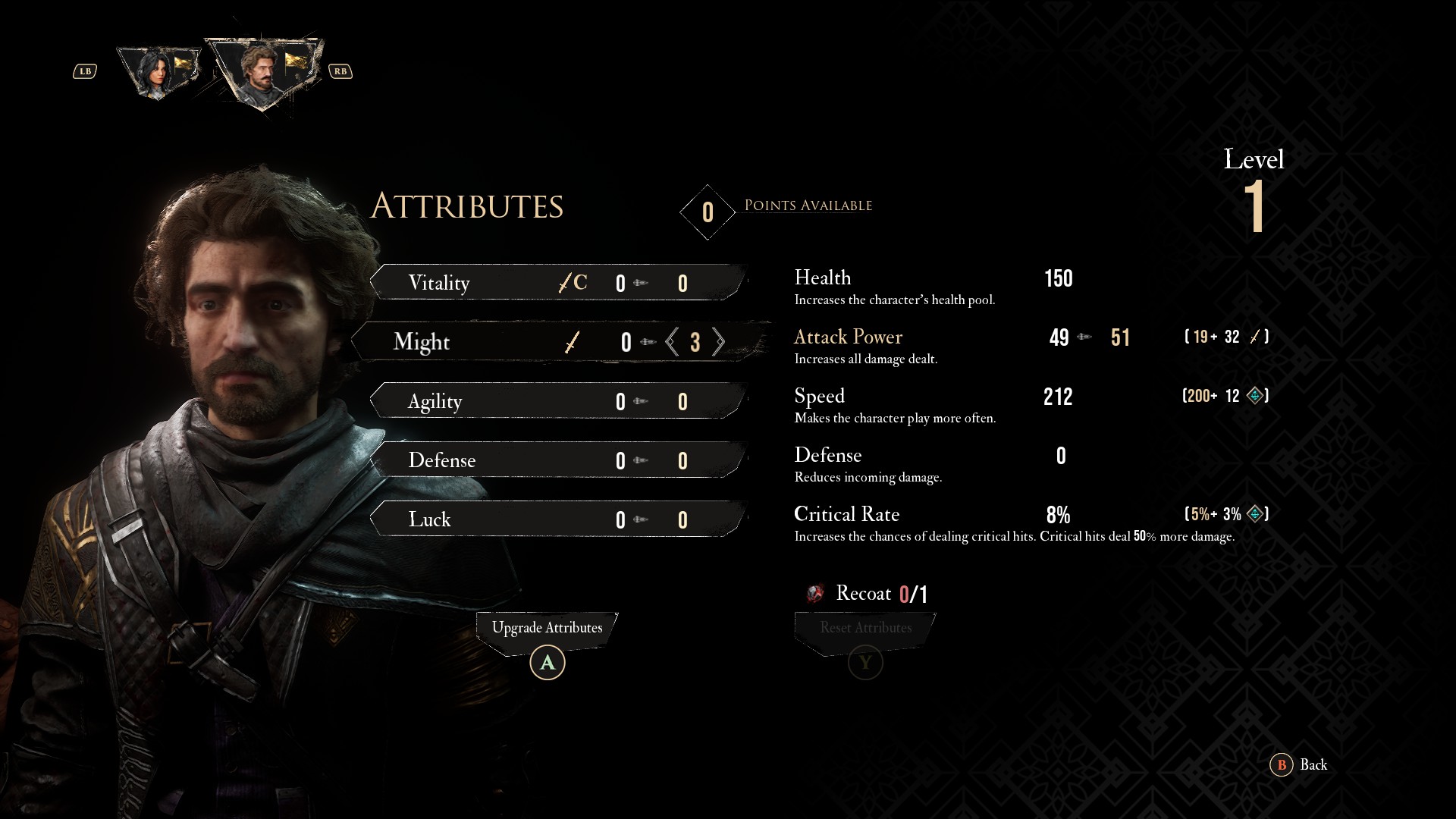
The real-time half and the turn-based half feel at odds, even if there are ways they serve each other. I admit it's fun to discover a secret weak point with the Free Aim shot or parry a flurry of attacks, flooding my mana pool with more than I could possibly spend in a turn. But because the game punishes a missed dodge so harshly and all I got for tightening my strategy was slightly shorter fights, it felt optimal to walk into any given battle with the intent to lose, memorize the enemy's attacks, and return to slap them around.
Clair Obscur ultimately seemed uninterested in my build altogether, sometimes feeling more like a rhythm game with a JRPG awkwardly stapled onto it.
Growing Pains
Clair Obscur bills itself as an evolution of the JRPG, but beyond its surreal world and changes to combat, it's mostly business as usual, albeit streamlined. Exploration is split between a sprawling overworld map and smaller, self-contained zones, and enemies slowly patrol your path to the nearest objective waiting to be trounced. These encounters can be safely avoided for the most part, though you're likely to fall behind on levels if you avoid everything. That said, there's hardly a grind in this game, partially because there are no random encounters, and partially because it's astoundingly short for an RPG, clocking in at around 20 hours.
I imagine whether that's a good or a bad thing depends on your work schedule and the size of your backlog, but I found it refreshingly fast-paced and lean.
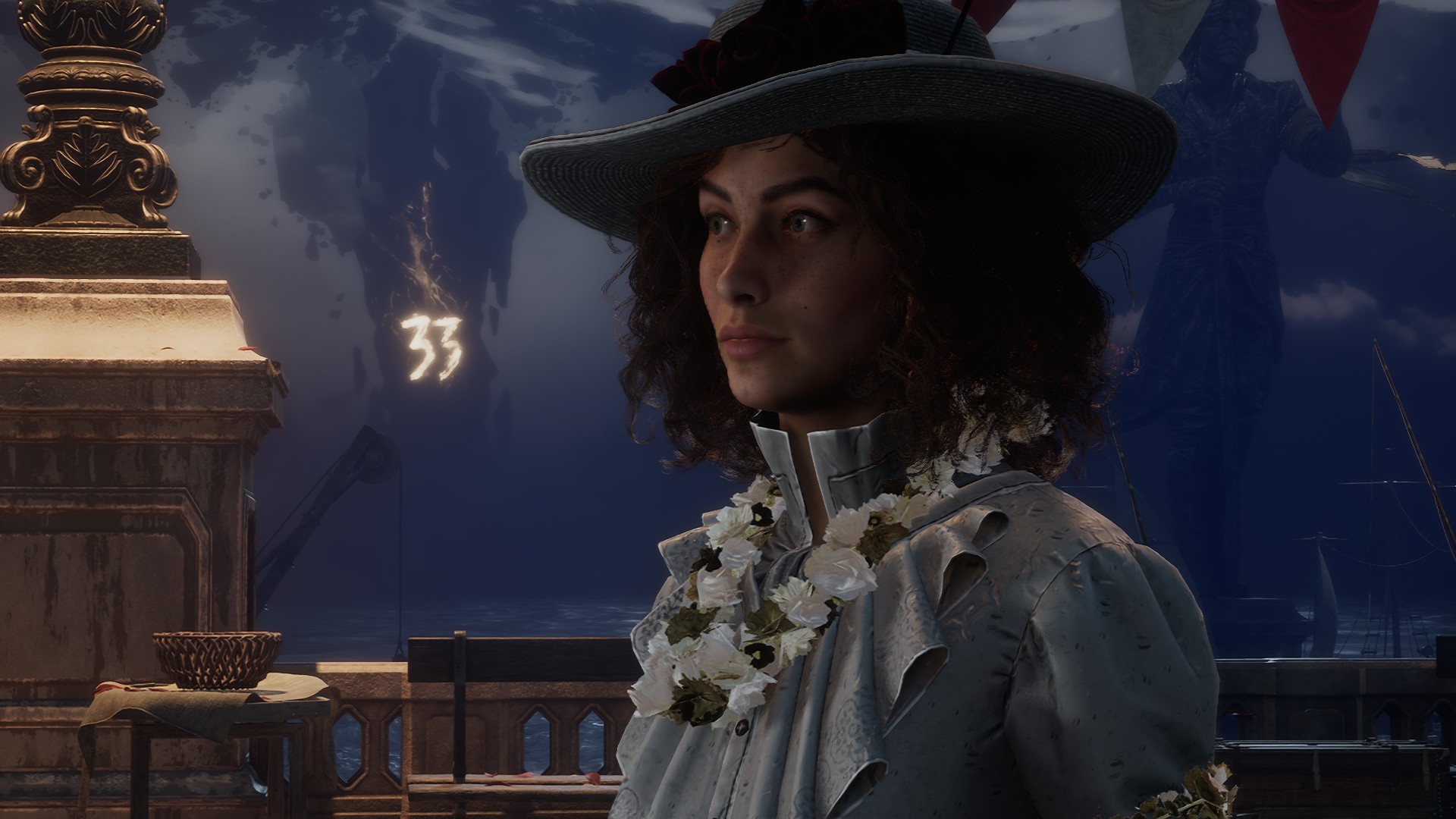
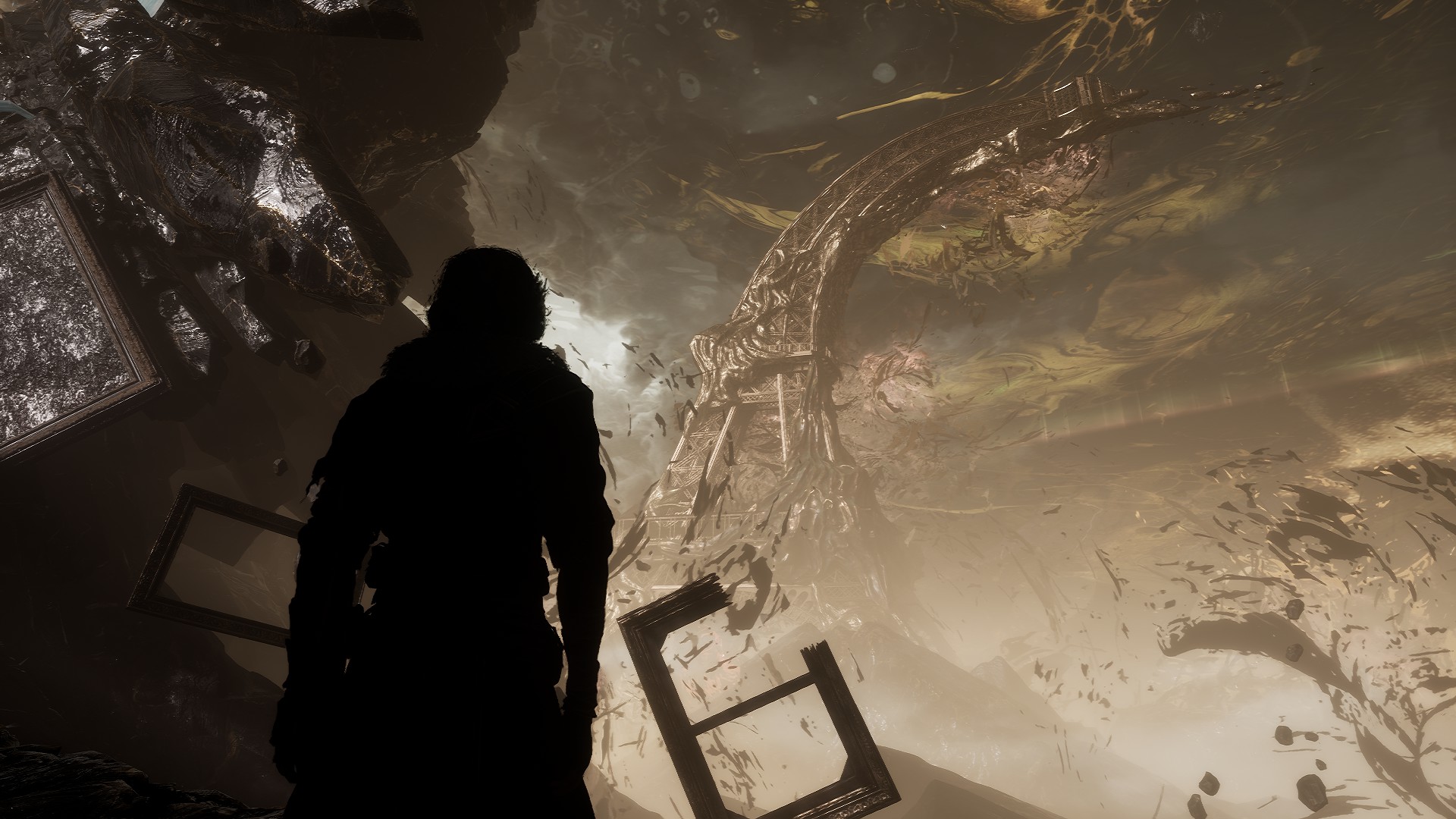
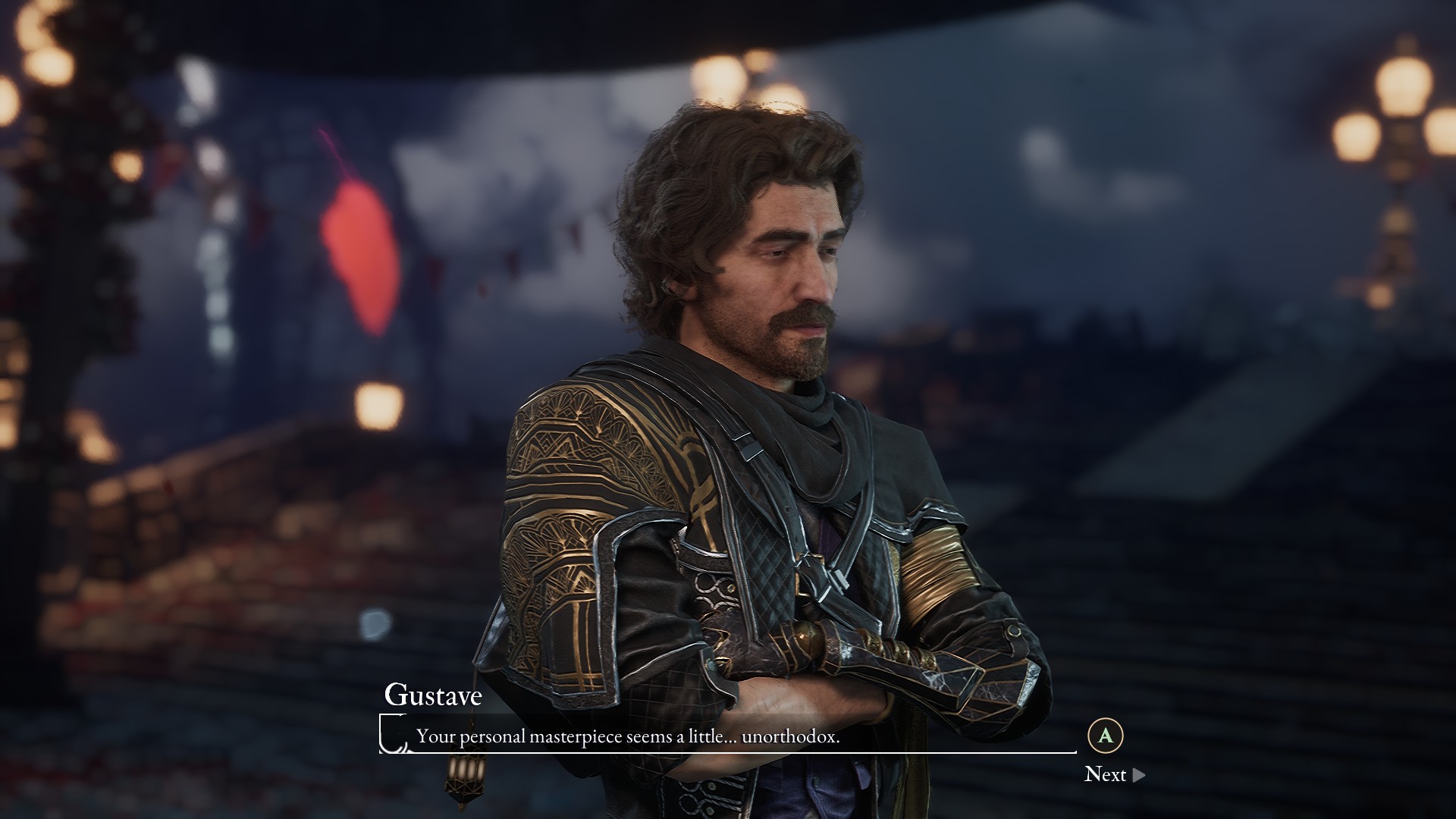
The streamlining continues in the world of inventory and party management; that is to say, there barely is any. Instead of buying or looting potions, you have a limited supply which replenishes each checkpoint. You accrue weapons which scale with different stats and passive-granting Pictos, each of which are easily swapped and reallocated between fights. It's all frictionless and slight, with the emphasis staying on the battles and cutscenes. Had the game been longer I might have wanted more, but the credits rolled before I could get antsy.
That's what leaves me in a tough spot with Clair Obscur. The world and characters charmed me. The big goofy balloon man flying my party around not-France. The tragic and convoluted story of the Paintress. The capricious, shapeshifting vendors that only show their whole stock if you can beat them in a fight. It's all strange and arresting, really baguetting a double-take in a sea of games starring anime teenagers getting their deicide on.
The score ping-pongs between swelling orchestras, roaring electric guitars, and '80s pop, and every environment I explored was radically different from the last. I feel like I should be chomping at the bit for another adventure in this world, but the majority of my time was spent wrestling with its battle system, undermined by real-time additions that feel like solutions in search of a problem. My affection for everyone in Expedition 33 was drowned out by the exhaustion I felt keeping them alive. Even as short as the game is, I sighed a breath of relief when it was finally over.
Clair Obscur: Expedition 33's gorgeously realized world is let down by its emphasis on combat, marred by a few fatal stumbles.
Justin first became enamored with PC gaming when World of Warcraft and Neverwinter Nights 2 rewired his brain as a wide-eyed kid. As time has passed, he's amassed a hefty backlog of retro shooters, CRPGs, and janky '90s esoterica. Whether he's extolling the virtues of Shenmue or troubleshooting some fiddly old MMO, it's hard to get his mind off games with more ambition than scruples. When he's not at his keyboard, he's probably birdwatching or daydreaming about a glorious comeback for real-time with pause combat. Any day now...
You must confirm your public display name before commenting
Please logout and then login again, you will then be prompted to enter your display name.
